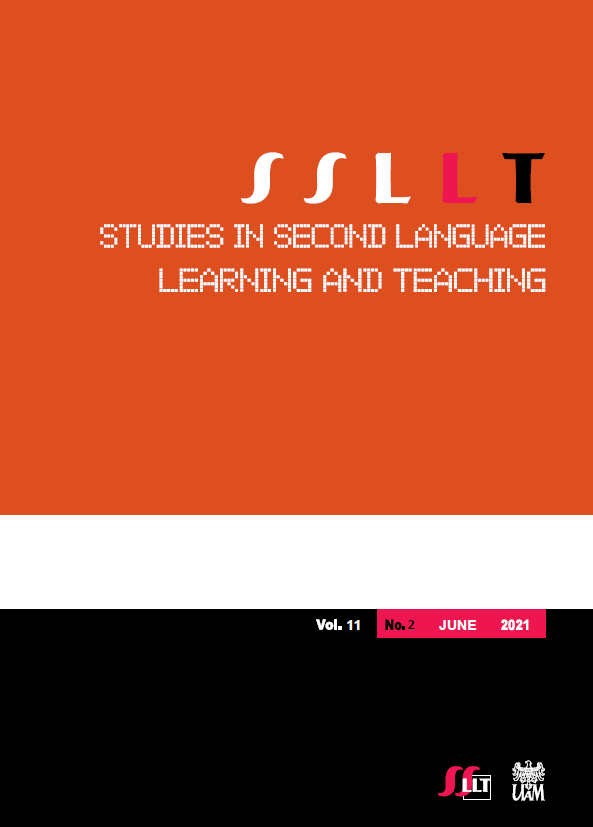High school EFL students’ beliefs about oral corrective feedback: The role of gender, motivation and extraversion
High school EFL students’ beliefs about oral corrective feedback: The role of gender, motivation and extraversion
Author(s): Xuan VanHa, Jill C. Murray, A. Mehdi RiaziSubject(s): Language and Literature Studies, Foreign languages learning
Published by: Wojskowe Biuro Historyczne im. gen. broni Kazimierza Sosnkowskiego
Keywords: oral corrective feedback; learner beliefs; gender; motivation; Vietnamese secondary school
Summary/Abstract: This study employed an explanatory sequential mixed-methods research design to examine the beliefs of Vietnamese EFL students concerning oral corrective feedback (CF) and the role of some individual differences in these beliefs. The data consisted of questionnaires completed by 250 Vietnamese high school students and follow-up interviews with 15 of them. Exploratory factor analysis revealed six latent factors underlying students’ beliefs about CF, namely, (1) output-prompting CF and eliciting recasts, (2) desire for CF, (3) non-verbal cues, (4) important errors, (5) input-providing CF, and (6) less important errors. Descriptive statistics and thematic analysis of the interviews showed that students were positive about CF. They liked both input-providing CF and output-prompting CF for all error types. Metalinguistic feedback was the most strongly preferred, while clarification request was the least preferred. Further statistical analyses revealed some interesting relationships between students’ beliefs about CF and their gender, English learning motivation, and self-rated introversion/extraversion. Females were more positive about CF than males, and extraverted females were more positive about input-providing CF than introverted females. Also, students learning English for exams were more positive about CF than those learning English for communication. Pedagogical implications for effective feedback provision in EFL contexts are discussed.
Journal: Studies in Second Language Learning and Teaching
- Issue Year: 11/2021
- Issue No: 2
- Page Range: 235-264
- Page Count: 30
- Language: English

